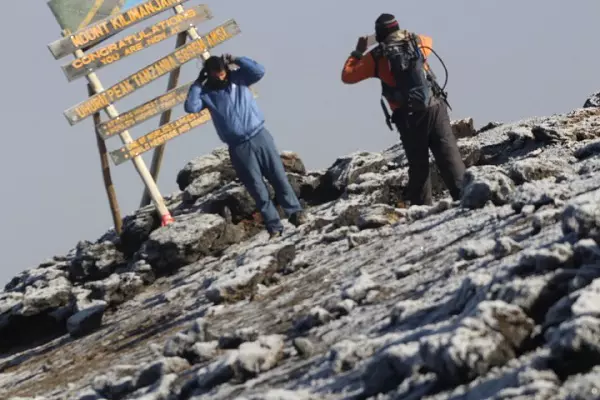
Climbing Mount Kilimanjaro is a once-in-a-lifetime adventure that demands careful planning and the expertise of a reliable operator. Choosing the best Kilimanjaro operators is a critical decision that can significantly impact the success, safety, and overall experience of your trek to the highest peak in Africa. In this comprehensive guide, we will explore key factors and essential considerations to help you navigate the process of selecting the best Kilimanjaro operator for an unforgettable and successful climb.
Conduct thorough research on Kilimanjaro operators. Read reviews from previous climbers to gain insights into their experiences. Online forums, travel websites, and testimonials offer valuable information about the reputation and reliability of different operators.
Ensure that the Kilimanjaro operator is certified and licensed by the Tanzanian government. Membership in reputable associations like the Kilimanjaro Association of Tour Operators (KATO) is a positive sign, indicating adherence to safety standards and ethical practices.
Opt for operators with a proven track record and extensive experience in organizing Kilimanjaro climbs. Established operators are likely to have knowledgeable guides, well-organized itineraries, and a history of successful summit attempts.
Inquire about the qualifications, experience, and training of the guides provided by the operator. Knowledgeable and experienced guides enhance the safety and enjoyment of your climb, as they navigate the challenges of the terrain and provide valuable insights into the region.
Safety is paramount when choosing a Kilimanjaro operator. Inquire about the company's safety protocols, emergency evacuation plans, and the availability of medical staff or first aid kits during the climb. A commitment to safety ensures a secure and well-managed expedition.
Consider the client-to-guide ratio offered by the operator. A lower ratio allows for more personalized attention and support during the climb. This is crucial for ensuring that each climber receives adequate guidance and assistance throughout the journey.
Assess the quality of equipment provided by the operator, including tents, sleeping bags, and other gear. Well-maintained and high-quality equipment is essential for comfort and safety during the climb. Inquire about the condition and regular maintenance of the equipment.
Review the proposed climbing itinerary and acclimatization plan. A well-structured itinerary with sufficient acclimatization days increases your chances of a successful summit and minimizes the risk of altitude-related issues. Ensure that the operator prioritizes a gradual ascent for optimal acclimatization.
Choose an operator with transparent pricing policies. Inquire about the inclusions and exclusions in the quoted price to avoid any hidden costs. Be cautious of operators offering unusually low prices, as this may compromise the quality of services provided.
Seek feedback from previous clients of the Kilimanjaro operator. Client testimonials provide firsthand insights into the actual experiences of climbers, allowing you to gauge the operator's reliability, professionalism, and commitment to customer satisfaction.
Selecting the best Kilimanjaro operators is a crucial step in ensuring a safe, enjoyable, and successful climb to the summit of Mount Kilimanjaro. By considering factors such as experience, safety protocols, guide expertise, and client testimonials, you can make an informed decision and embark on a memorable journey to the Roof of Africa with confidence.